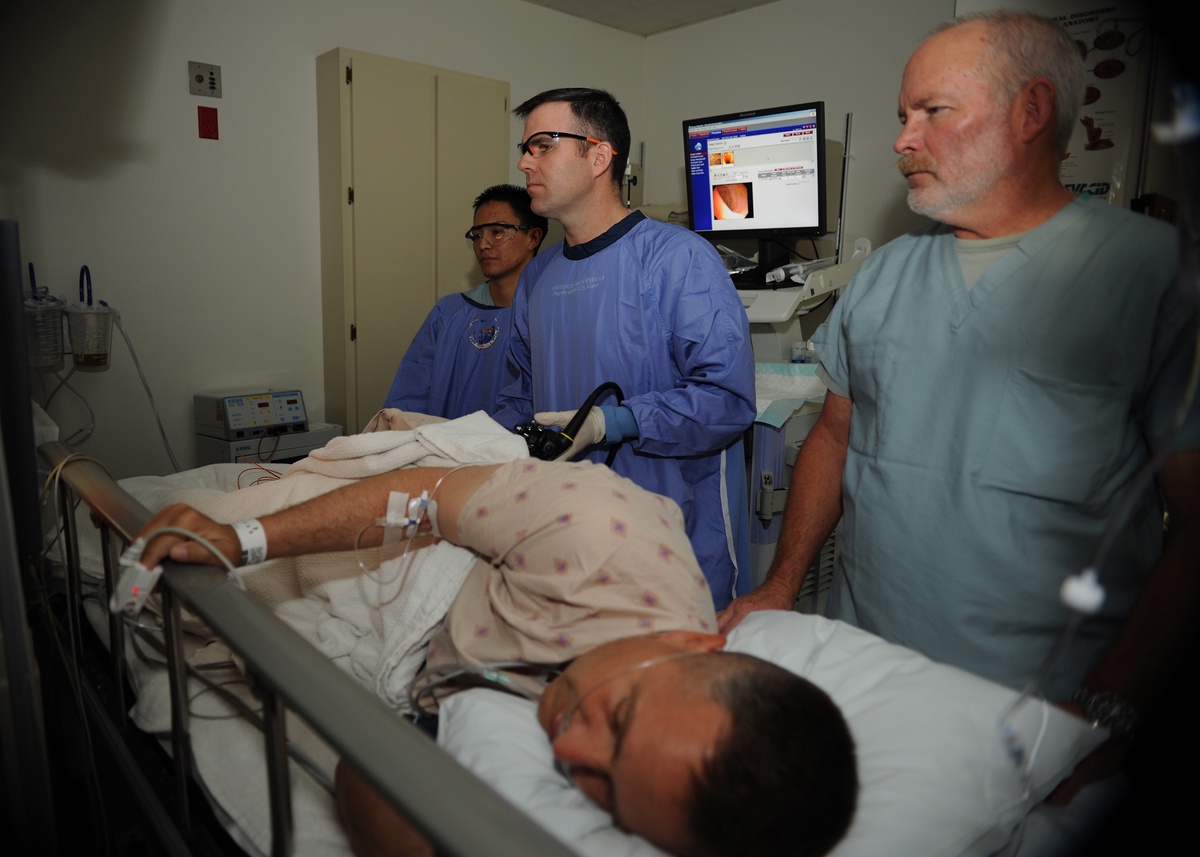An inspection of the inside of your large intestine (colon) is called a colonoscopy. It is used to diagnosee gastrointestinal conditions, including colon cancer and inflammatory bowel disease. Colon cancer can be prevented and treated with its assistance. For middle-aged and older persons, routine colonoscopies are advised as a cancer screening procedure by medical professionals. In this write-up, we will discuss the timeline of how long does a colonoscopy take.
How Long Does a Colonoscopy Take?
The timeline of how long does a colonoscopy take is as follows-
1. The Day Before Your Colonoscopy
- You will need to follow a clear liquid diet all day before your colonoscopy. This usually involves only consuming clear broth, juice without pulp, water, plain gelatin, popsicles, coffee without milk, and tea without milk or creamer. Avoid any red or purple liquids which could be mistaken for blood during the procedure.
- In the evening, you will need to complete a bowel prep to thoroughly clean out your colon. This involves taking laxative medicines either in pill form or drinking a prescription bowel prep solution. Follow the prep instructions from your doctor to complete the purge and stay close to a bathroom.
- Make sure to drink plenty of clear liquids during the prep to avoid dehydration. The bowel prep will cause rapid diarrhoea to empty your colon. This can take 2-4 hours to fully work though the timing varies.
- Stop eating solid foods and continue only clear liquids until bedtime. Avoid alcohol the day before your test.
2. The Day of Colonoscopy
- Arrive at your appointment on time, usually first thing in the morning. If you want to know how long does a colonoscopy take, you must also know that the test is often scheduled early since you cannot eat breakfast beforehand.
- A nurse will bring you to a prep room and have you change into a hospital gown.
- Your vitals will be checked and an IV will be inserted into your arm. Medicines like sedatives or pain relievers may be administered through the IV to make you comfortable.
- When it is time for your procedure, you will be brought into the colonoscopy room and helped onto your side on an exam table. A thin, flexible tube called a colonoscope will be lubricated and gently inserted into your rectum.
- Your doctor will then guide the colonoscope through your large intestine, pumping air to inflate the colon and allow for better viewing. This may cause mild cramping.
- Tiny instruments can pass through the colonoscope to take biopsies or remove polyps during the exam. If you are wondering how long does a colonoscopy take, the actual colonoscopy only takes about 20-30 minutes.
- After the scope is removed, you will be moved to a recovery area to rest until the sedation wears off, which usually takes about 1 hour. Your vitals will be monitored and you may feel some minor gas pains as the air introduced during the test is expelled.
3. Post Colonoscopy
- If you had intravenous sedation, you will need a friend or family member to drive you home after you recover. You may feel groggy the rest of the day.
- You will be able to eat normally and resume your usual diet after the exam. Start with gentle foods until it is clear your system has returned to normal. Avoid alcohol until the sedation has fully worn off.
- Bloating and gas are common and should pass within 24 hours. Call your doctor if you have severe pain, fever, bloody stool, nausea/vomiting, or other concerning symptoms.
- Rest at home and take it easy for the remainder of the day. You may feel minor cramping or have a sore bottom from the colonoscope. Over-the-counter pain relievers can help.
- Test results are usually available within a few days or up to a week. Polyps may take longer to analyse. Your doctor will go over the colonoscopy report at a follow-up appointment and recommend any needed treatment or next steps.
- Screening colonoscopies are generally recommended every 10 years starting at age 45-50 for average risk adults. Your doctor may suggest repeat exams sooner if abnormalities were found or you have certain risk factors. Properly preparing for and recovering after the colonoscopy is key for this vital preventative test.
Conclusion
Knowing how long does a colonoscopy take gives you an idea about the whole procedure and what you can expect. The length of the colonoscopy itself is important as your doctor needs adequate time to thoroughly inspect the colon's lining for any abnormalities. Being aware of the complete time commitment avoids surprises and helps ensure this potentially lifesaving cancer screening test goes smoothly from start to finish.


No comments yet